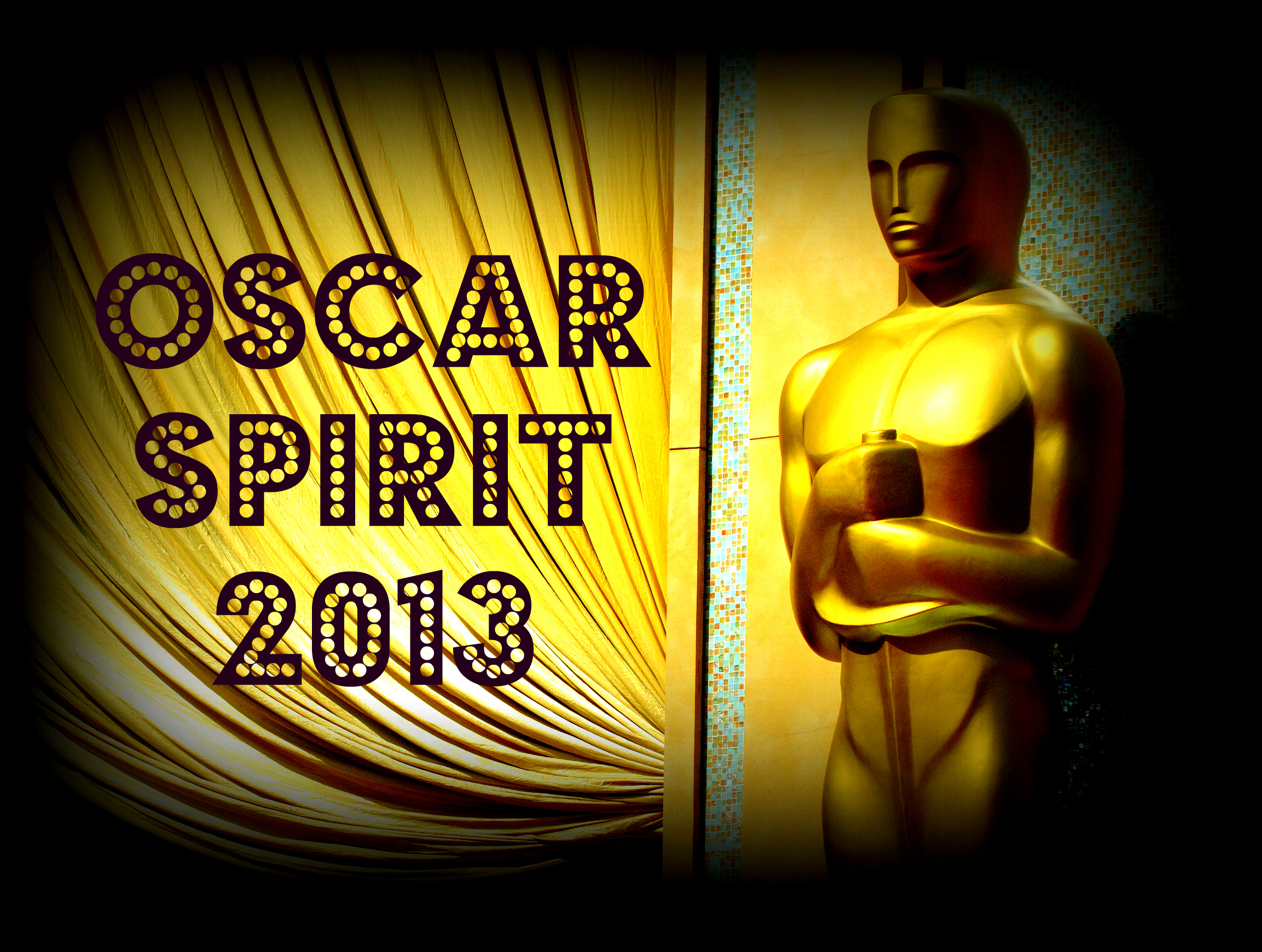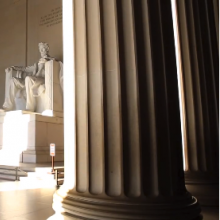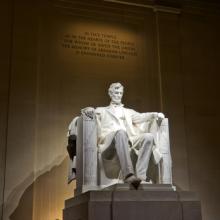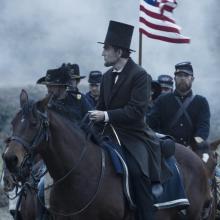Abraham Lincoln
Lincoln’s Dilemma, released this month on Apple TV+, presents a complicated version of the 16th president. The four-part series portrays Lincoln as a man of his time and place, wrestling with the culture war of his day: slavery.
The Utah Republican is on 11 state ballots. He has no major-party backing, and he’s little known outside of the Beehive State.
But Mormon disaffection with Donald Trump is offering the Provo-born graduate of Brigham Young University a chance to disrupt the outcome in this reliably red state, which has not gone to the Democrats since 1964.
This semester I’m teaching a course called “Faith and Politics” at Emory University’s Candler School of Theology. It’s been a fascinating class for me, and I’m blessed to have very bright students who are required to volunteer for an actual political campaign and keep a journal of their experience.
Their final assignment is to write a paper proposing strategies for healing our divided nation. Our assumption is that all of the major faith traditions have important resources to bring to conflict transformation and reconciling opponents.
There are a few lessons from my class that might be useful for politicians and for the entire nation as we move toward the election.
Last week’s last minute funding for the Department of Homeland Security has reminded us of how desperately America needs a long-term solution in the area of immigration. The current approach has failed to control the border, has resulted in de facto amnesty for 11-12 million people (the rough equivalent to the population of Ohio), and isn’t meeting our needs in the area of economic development and national security.
A necessary first step is acknowledging that the deportation of 12 million residents would be logistically impossible, as well as morally reprehensible and economically disastrous. The vast majority of these residents have proven themselves to be valuable members of our communities. We can debate the morality of mass deportation, but its logistical impossibility is grounds for moving on to a serious discussion about how to fix the system we have inherited
A little known fact of Lincoln’s legacy is that he explored the option of deporting slaves until he concluded that mass deportation could not solve the problem of slavery. In the weeks preceding the emancipation proclamation, Lincoln was actively pursuing an effort to deport the African-American slaves to Haiti, Honduras, and other counties in Central and South America. Congress actually appropriated $600,000 to assist Lincoln in deporting slaves to these destinations. Lincoln abandoned these plans only when other countries refused to cooperate. He abandoned them out of logistical, not moral necessity. He concluded that it simply could not be done. Then he moved on to legislation that earned him his reputation as the “great emancipator.”
President Obama’s political opponents are outraged over his remarks at last week’s National Prayer Breakfast comparing Islamic violence to historic Christian violence. Jim Gilmore, former chairman of the Republican National Committee, called the remarks “the most offensive I’ve ever heard a president make in my lifetime.”
But anyone who is angry with Obama’s speech must also express the same wrath toward one of the greatest presidential speeches in American history, Abraham Lincoln’s Second Inaugural Address, delivered 150 years ago next month.
Obama used his annual remarks at the National Prayer breakfast to condemn radical Islam (though he didn’t use the term). In the process, he made some more general comments about how religion has been used — both today and in the past — to promote violence.
What has rankled many conservatives is Obama’s statement that “during the Crusades and the Inquisition, people committed terrible deeds in the name of Christ.” He then brought his historical analogy closer to home:
“In our home country, slavery, and Jim Crow all too often was justified in the name of Christ.”
A revealing thing happens when you remove yourself from the daily drum of politics and become a mere observer. I did just that last year, during some of the most divisive moments of the presidential election. Sitting back and watching the deluge of insults and accusations that feeds our political system, I witnessed the worst of us as a nation. And I came to the conclusion that it’s time to reframe our priorities.
When did we trade the idea of public servants for the false idols of power and privilege? When did we trade governing for campaigning? And when did we trade valuing those with the best ideas for rewarding those with the most money?
We’ve lost something as a nation when we can no longer look at one another as people, as Americans, and — for people of faith — as brothers and sisters. Differing opinions have become worst enemies and political parties have devolved into nothing more than petty games of blame.
During a three-month sabbatical, observing this mess we’ve gotten ourselves into, I prayed, meditated, read — and then I put pen to paper. The resulting book gets to the root of what I believe is the answer to our current state of unrest. It is not about right and left — or merely about partisan politics — but rather about the quality of our life together. It's about moving beyond the political ideologies that have both polarized and paralyzed us, by regaining a moral compass for both our public and personal lives — by reclaiming an ancient yet urgently timely idea: the common good.
 This week, in the run-up to Sunday's Academy Awards ceremony, we've been taking a look at each of the Best Picture nominees, the stories they tell, and the spiritual questions (and answers) they offer.
This week, in the run-up to Sunday's Academy Awards ceremony, we've been taking a look at each of the Best Picture nominees, the stories they tell, and the spiritual questions (and answers) they offer.
In today's final installment, we turn our attention to Lincoln, Silver Linings Playbook, and Zero Dark Thirty.
Blogger Hamden Rice's 2011 essay "Most of You Have No Idea What Martin Luther King Actually Did" has become an underground classic that rightly resurfaces around King Day events.
I didn’t expect to leave a Friday night screening of Lincoln thinking about Jesus.
And I definitely didn’t expect the link to be an Italian political philosopher named Grigorio Agamben.
But of Lincoln’s many triumphs as an Oscar-season contender, its lasting effect is its surprisingly mature meditation on wisdom, freedom, and the necessity of employing the former when granted the latter.
Watching Lincoln reason aloud his justification for the Emancipation Proclamation, an act he admits to his advisors was dubiously legal at best, we encounter the film’s driving question: in a time of crisis when the rules no longer apply, what kind of moral vision do we want in leadership?
Abraham Lincoln was a storyteller, so it’s fitting that his story has been hashed out on the silver screen — without vampires.
And to say that it simply was “hashed out” would be an injustice to director Stephen Spielberg and everyone who contributed to Lincoln, a film that will be remembered as much for its beauty as the iconic character from which it gets its name.
I’m not going to lie (pun intended), even though Lincoln is one of the most important figures in American history, I was hesitant about seeing a movie with the potential to be a two-and-a-half hour history class.
But I was more than pleasantly surprised.
Despite its length, the film drew me in and held my attention — even as a millennial growing up with the Internet, which I’m convinced has significantly chipped away at the already small attention span I have.
U.S. soldiers board a flight to Iraq in Kuwait, Oct. 2006. Image via Wiki Commons http://bit.ly/w1FpAB
Rabbi Abraham Joshua Heschel once said about the war in Vietnam, “Some are guilty, all are responsible.” It is a good reminder of our responsibilities now that the war in Iraq has officially been declared ended.
First, we as a society are responsible for the necessary care for our returned veterans. A total of 1.5 million American men and women served in the armed forces in Iraq. Nearly 35,000 suffered physical injuries, as many as 360,000 may have brain injuries, and as many as 25 percent have symptoms of post-traumatic stress disorder.
Suicides and divorces are rising, homelessness and unemployment are high.
Having sent them to war, our society now needs to assume the responsibility for providing what they and their families need. As Abraham Lincoln reminded the country in his second inaugural speech, as the Civil War was ending in March 1865, one of the unfinished tasks was “to care for him who shall have borne the battle and for his widow and his orphan …”
We must advocate for and ensure that in the budget and deficit cutting battles to come, the necessary funding for veterans care and benefits are maintained. It’s a moral obligation.
Did anyone else get the feeling, as we watched weather reporters wave their arms frantically in swirling motions across oversized maps of the eastern seaboard -- with their eyes bulging as they pushed out whole paragraphs without a single breath for a period -- that this was all hype?
Last weekend, as Irene passed over town after town in the mid-Atlantic, memories of Katrina did not materialize. By the time Irene huffed over New York City on Sunday morning, and the flood of the century was actually just a really big puddle in Battery Park and a floating lifeguard stand in Long Beach, my fear had transformed into complacency. From there I became cynical. By Sunday afternoon I found myself watching the weatherman's bulging eyes as he repeated the mantra of the day: "It's not as bad as we thought it would be, but it's not over." And I thought: "Boy, they'll do anything for ratings."
But it wasn't all hype.
With the bicentennials of Abraham Lincoln and Charles Darwin the subject of numerous conferences, articles, and television shows this month, we also should remember another important commemoration in 2009: the centennial of the founding of the National Association for the Advancement of Colored People (NAACP).









